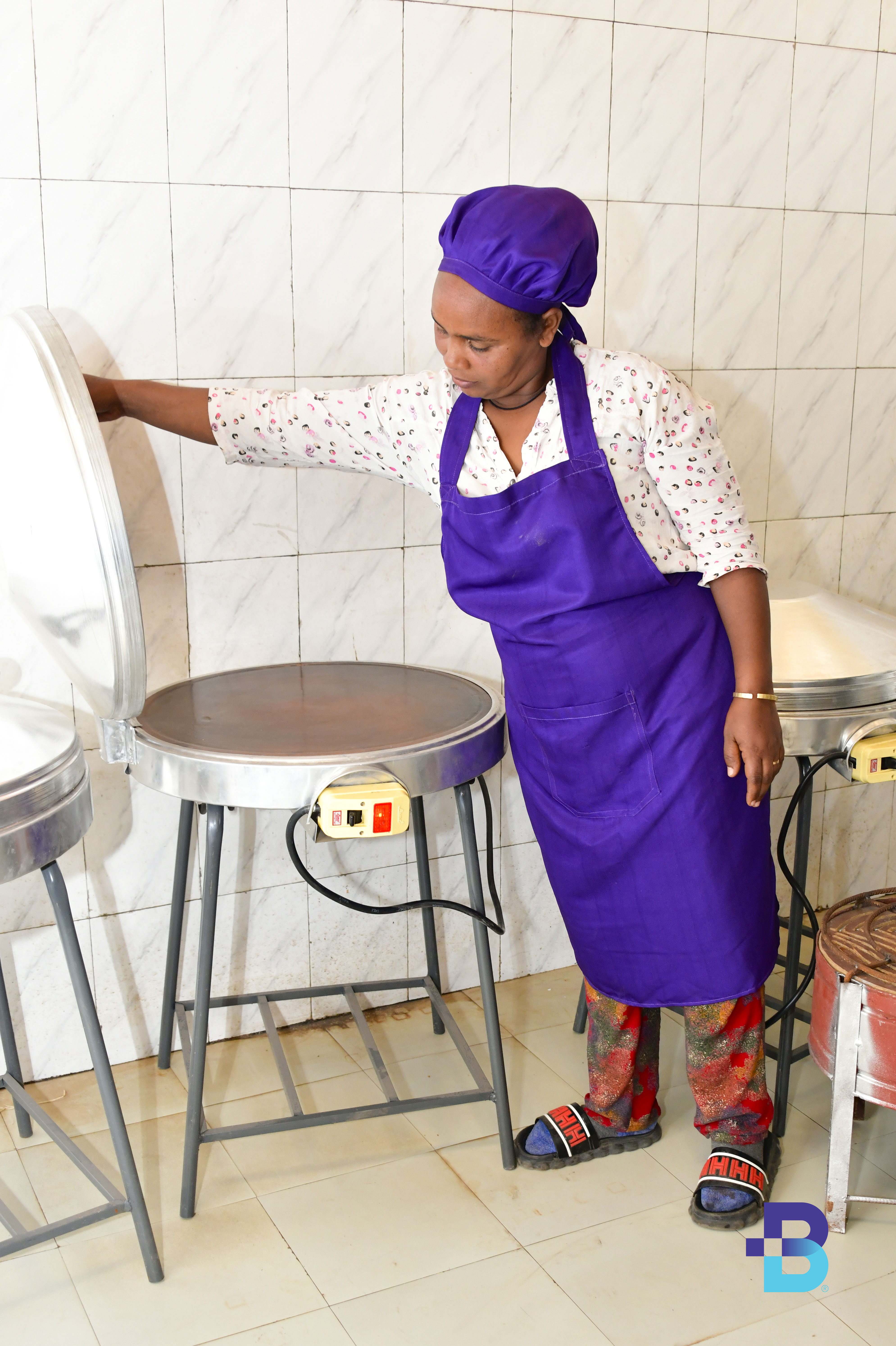Nurturing Generations: The Unsung Heroes

Mothers who feed generations are an inspiration. Imagine seeing over 2,000 children being fed breakfast and lunch every school day. One school that has made a difference is the Yemane-Berhane Primary School, located in the western part of Addis Ababa, called Woyra Sefer. It is a government school, and most children have come from low-income households. In February 2019, the Addis Ababa City Administration launched a broader school feeding program to serve all pre-primary and primary school students in government schools. Our project, called a community-based intervention approach, has been piloted in the community of Kolfe Keraniyo sub-city, Woreda 6, to identify eligible women who are willing to work in a cooperative business to generate sustainable income for their households. Our project aims to empower women economically and socially, enabling them to provide better care for their children. With the collaboration of the Woreda 6 job creation and enterprise development office, our project reached women at school feeding cooperatives who were facing multiple challenges in accessing basic infrastructures such as electricity and water, which made their work difficult. Alemnesh, the chairwoman of the cooperative, said that cooking food using firewood was challenging, as it was very hot and smoky. Some members of the cooperative even withdrew due to the smoke affecting their health.
Bethany staff visited the cooperative and saw for themselves how difficult it was for the women. There were more than ten traditional ovens on fire, and all women were actively engaged in it. They observed a young woman with heavy sweat on her face, and learned how challenging it was. Most of the women were less motivated because of the challenges they faced.
Bethany took the lead and initiated collaboration with local government administration and school administrations to solve the problem that women were facing daily in serving school children and to build their capacities. With the strong collaboration held through formal and informal meetings, the school feeding cooperative now has access to electricity permanently. They have also received electrical and non-electrical supplies like injera ovens, stoves, cooking pots, barrels, water tanker, and food items such as teff, rice, and maize from the Bethany project.
The chairperson of the cooperative, Alem, expressed gratitude and happiness for the support they have received. They are now motivated to continue as a school feeding cooperative and serve children from their communities. They receive payment through the government financial system and earn their monthly salary regularly to feed their household and to cover their living costs. All cooperative members are better motivated and actively working together to feed school children. They are grateful for the support they have received through Bethany, which enabled them to solve the difficult work situation, created a conducive environment, and increased their sense of ownership.